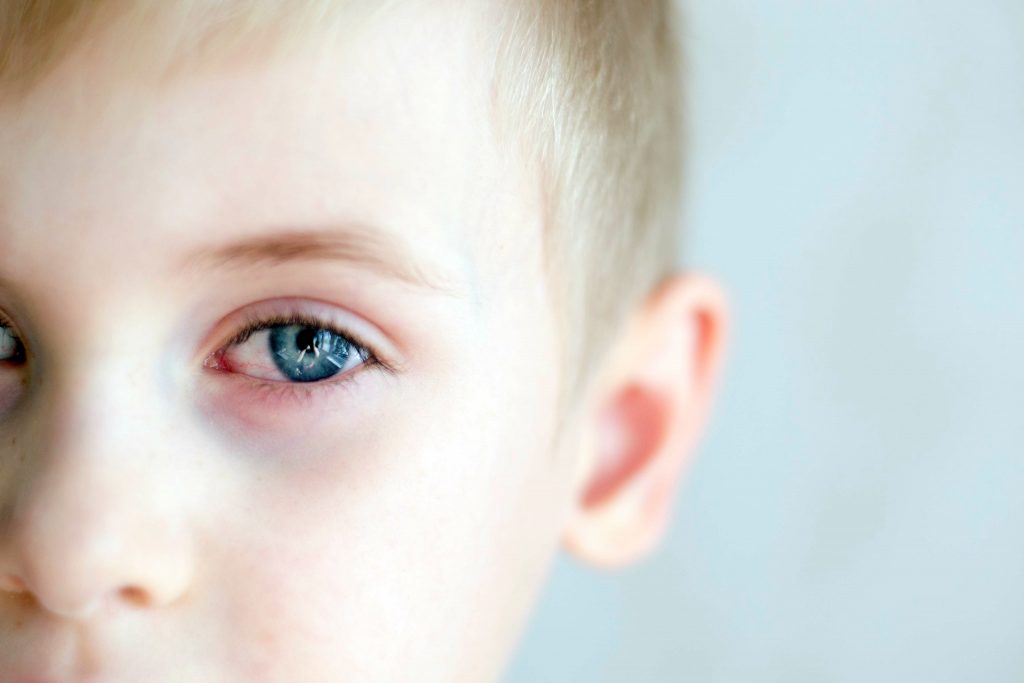What Is Pink Eye (Conjunctivitis) in Children?

If your child comes home complaining of itching, irritation or burning in their eyes, they may have pink eye. If so, you need to schedule an eye exam right away with an eye doctor in Northwest Florida. The doctor can help your child find relief from the symptoms of pink eye and avoid spreading it to others.
Pink eye (Conjunctivitis) occurs due to inflammation of the conjunctiva, the white part of the eye and the inner eyelids. Although pink eye looks severe, it is a relatively mild, treatable condition. While pink eye clears up in one to two weeks, your doctor can provide treatment to relieve the symptoms faster.
What Causes Pink Eye?
Pink eye is a common ailment in children and adults. The main causes of pink eye are:
- Allergic reaction
- Bacterial infection
- Viral infection
- Partially opened tear duct
- Foreign substance in the eye
Another cause of conjunctivitis is the herpes virus, which stays dormant in your child's body and can be activated when they experience stress. This condition can lead to cold sores on the lip, skin rashes or eye infections such as pink eye.
Two Types of Pink Eye Are Noninfectious.
Allergic Conjunctivitis
Allergic conjunctivitis occurs in children with allergic conditions like hay fever. Grass, ragweed pollen, animal dander and dust mites can trigger pink eye.
Irritant Conjunctivitis
Irritant conjunctivitis is a general condition that occurs as a result of anything that irritates the eye, such as air pollution or pool chlorine.
Pink Eye Symptoms
Some of the most common symptoms of pink eye include:
- Pink or red color in the white of the eye
- Swelling of the conjunctiva
- Increased tears
- Feeling like a foreign body is in the eye
- Feeling an urge to rub the eye
- Itching, irritation or burning
- Discharge (pus or mucus)
- Crusting of eyelids or lashes
- Discomfort when wearing contact lenses
Is Pink Eye Contagious?
Viral and bacterial conjunctivitis are very contagious; they spread easily from person to person. Allergic and irritant conjunctivitis are not contagious.
You can greatly reduce the risk of getting conjunctivitis or spreading it to someone else by practicing good hygiene.
Diagnosis and Treatment for Pink Eye
Keep in mind that other serious eye conditions can have similar symptoms. So, if your child complains of severe pain, changes in eyesight, swelling around the eyes or sensitivity to light, schedule an eye exam immediately.
Your doctor can prescribe antiviral medication to treat serious forms of conjunctivitis, such as conjunctivitis caused by the herpes simplex virus or the varicella-zoster virus. Antibiotics will not improve viral conjunctivitis; these drugs are not effective against viruses.
Mild bacterial conjunctivitis may get better without antibiotic treatment and without causing any complications. It often improves in two to five days without treatment but can take two weeks to go away completely.
How to Help Your Child with Treatment
Your child may complain about or resist having pink eye treatment several times a day.
If your child is resisting eye drops, put the drops on the inner corner of your child's closed eye. When your child opens their eye, the medicine will flow into it. This method is much simpler and more comfortable than applying drops directly into their eye.
If you still have trouble with drops, ask the doctor about an antibiotic ointment, which can be placed in a thin layer where the eyelids meet and will melt and enter the eye.
Schedule an Eye Exam Today
Contact the Gulf Coast Vision Center at one of our Pace, Milton or Crestview locations or at one of our Pensacola locations at Nine Mile or East Hill to schedule a comprehensive eye exam today.
